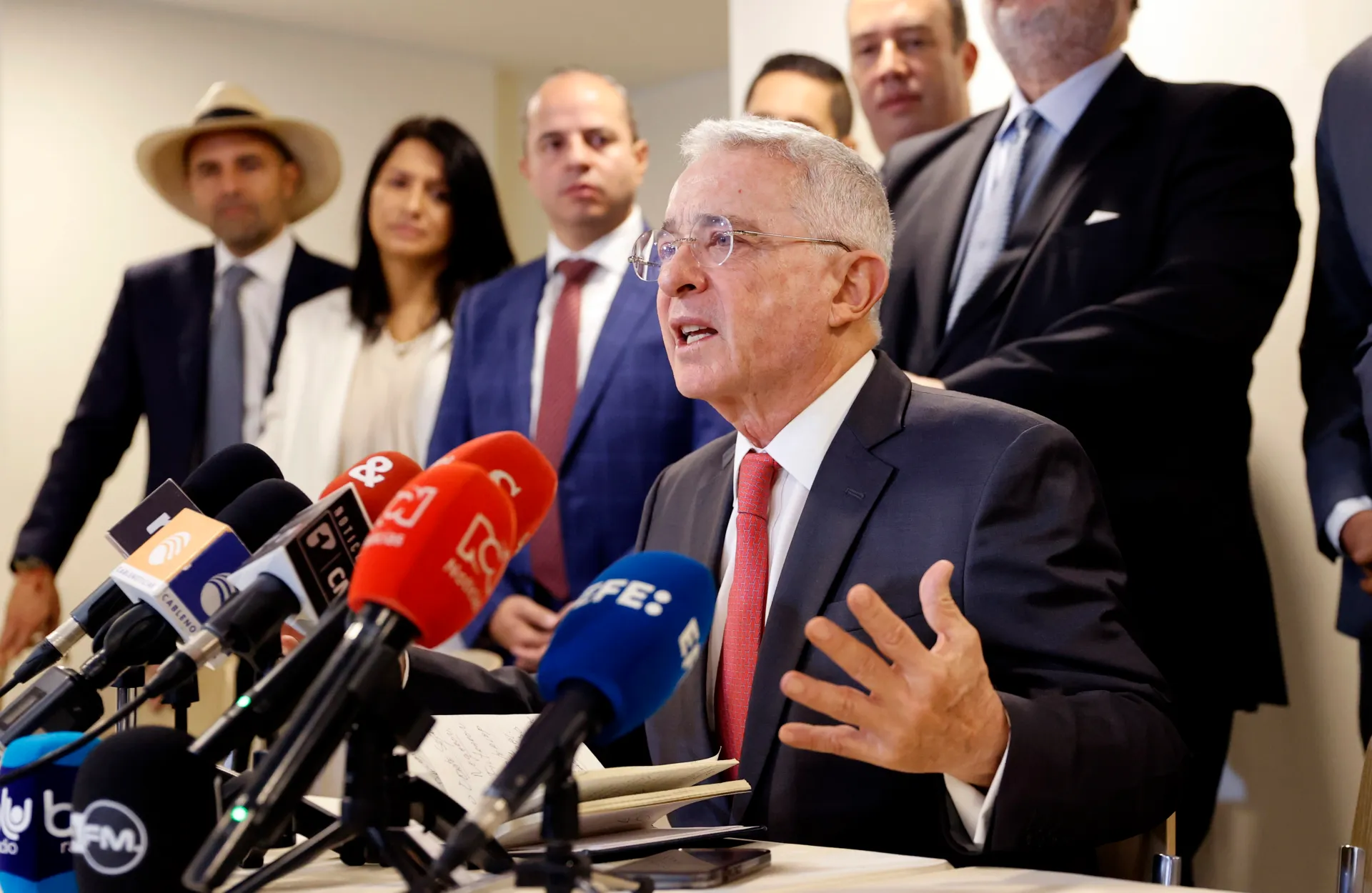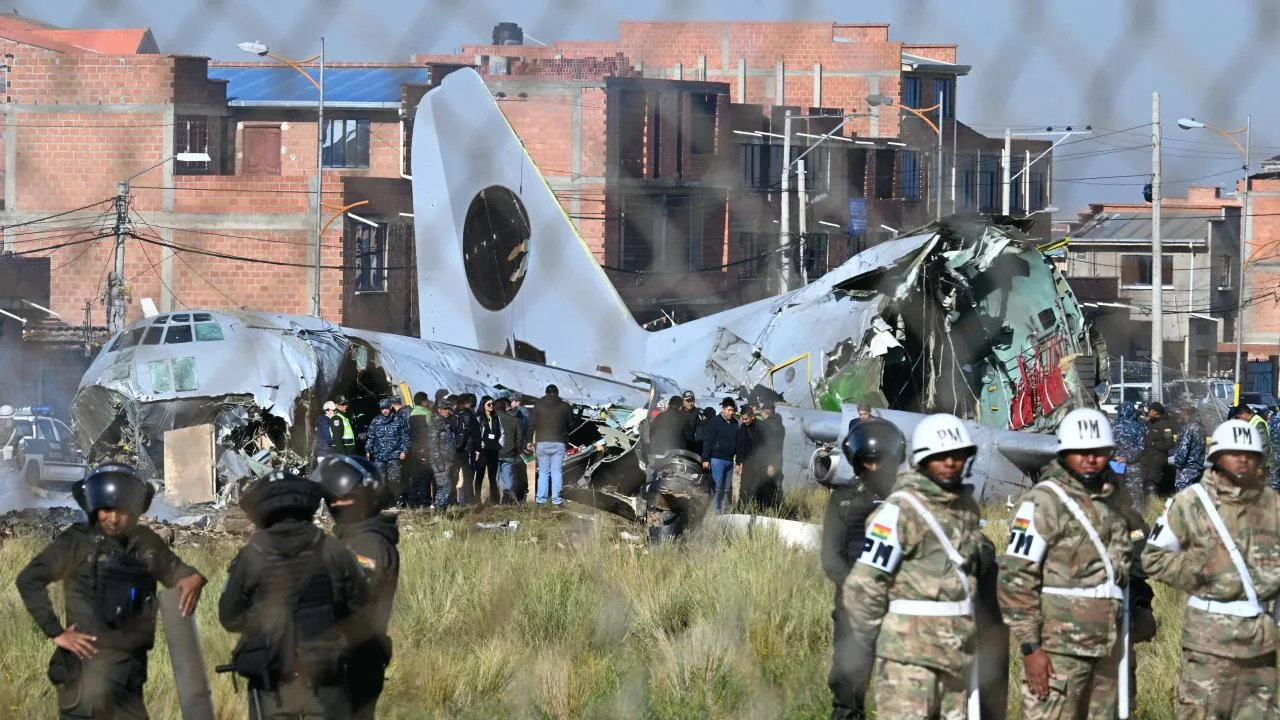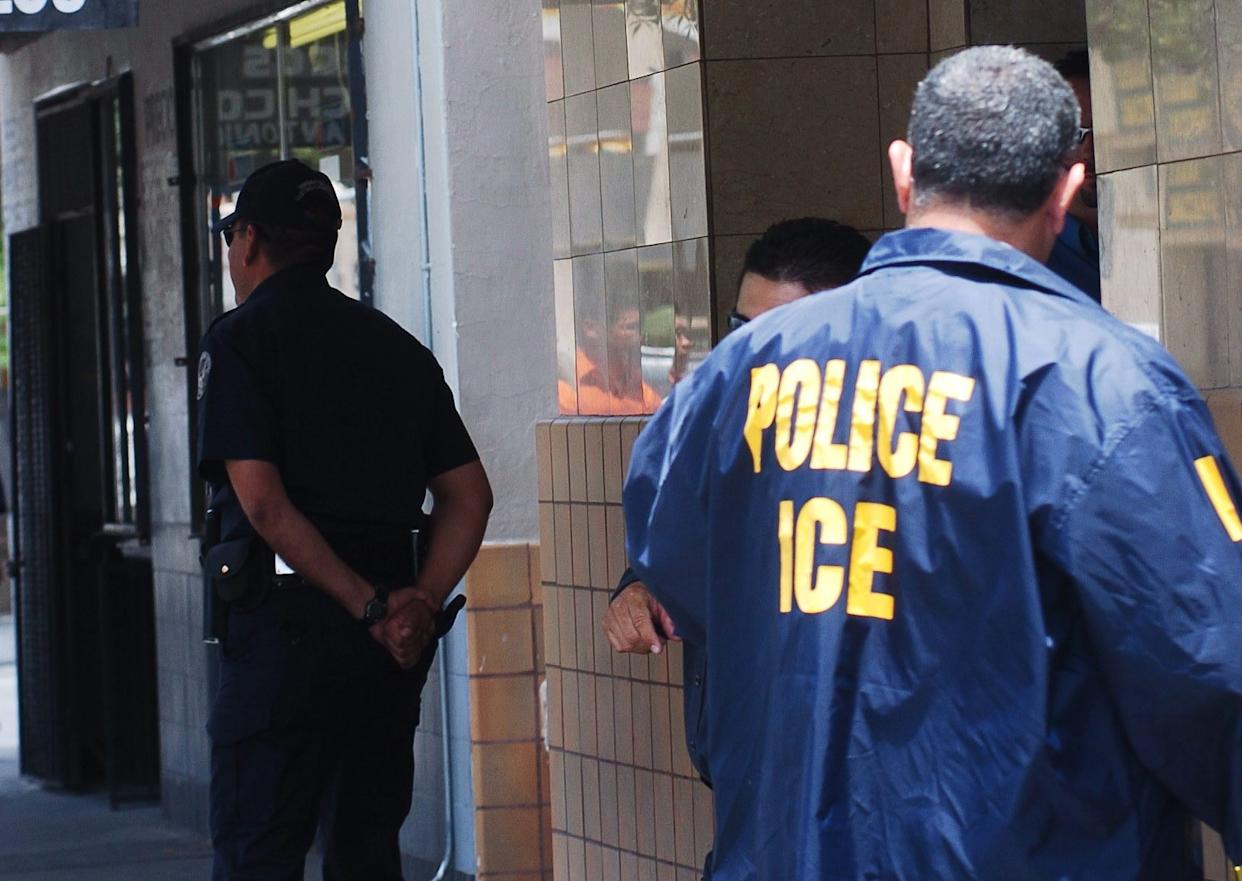International
The Colombian Prosecutor’s Office formally accuses former President Álvaro Uribe of three crimes

The Colombian Prosecutor’s Office accused Álvaro Uribe before a judge this Friday for the crimes of bribery, procedural fraud and bribery in criminal proceedings, so the former president becomes accused in the case of alleged bribery of witnesses and procedural fraud.
It is the first time that the Prosecutor’s Office has filed charges against Uribe (2002-2010), which were accepted by Judge 44 of criminal knowledge of Bogotá, Sandra Liliana Heredia, who ruled that “from this moment (the former president) acquires the status of accused.”
According to the judge’s decision, the process against Uribe begins formally and if guilty the head of the Democratic Center can be sentenced to between 6 and 12 years in prison.
The accusation comes after the togada denied the request for the nullity of the process against the former president by considering it “absolutely inappropriate,” so “its rejection is imposed flatly, a decision against which no appeal is appropriate.”
Likewise, the judge accepted as victims of the case Senator Iván Cepeda and former attorneys general Jorge Perdomo and Eduardo Montealegre, as well as Deyanira Gómez, former wife of paramilitary Juan Guillermo Monsalve, involved in the case.
These two decisions were celebrated by Cepeda’s lawyer, Reinaldo Villalba, who assured that “they are decisions that recognize not only the condition of the victims but the need for the victims to have access to justice and there defend and claim their rights.”
The prosecutor who leads the case, Gilberto Villarreal, accused Uribe as “determinator of the successive homogeneous contest of three bribery crimes in criminal proceedings” because for “the benefit of himself or a third party he gives or promises a utility to a person who witnessed a criminal act to refrain from running to testify or to totally or partially miss the truth.”
He also accused him of “sucessive homogeneous contest of two courts of procedural fraud,” that is, because “by any fraudulent means it misleads a public servant to obtain a sentence, resolution or administrative act contrary to the law.”
Also as a “determinator of the crime of bribery” because he delivered or promised “money or other utility to a witness so that he totally or partially lacks the truth or the street in his testimony.”
This case dates back to 2012 when Uribe, who was a senator, sued Cepeda for alleged manipulation of witnesses, who at that time was preparing a complaint in Congress against him for alleged links with paramilitarism.
Contrary to what was expected by Uribe, the Supreme Court of Justice did not open an investigation against the left-wing congressman and, instead, initiated a trial against Uribe for manipulation of witnesses.
The accusation of bribery has to do with the alleged payment of bribes to Carlos Enrique Vélez and Juan Guillermo Monsalve, who are imprisoned in the prisons of Palmira, and La Picota in Bogotá, respectively.
Monsalve, a former paramilitary, assured that there was a whole strategy to approach him and convince him to testify against Cepeda.
Uribe has been saying for years that it is a case against him that has political motives and that lacks evidence.
Uribe resigned his senator’s seat in August 2020 to stop being assigned and that his case was passed to ordinary justice and then the Prosecutor’s Office decided that there was no evidence to prosecute him judicially.
That is why he requested up to two occasions the preclusion of the case, which was denied both by the courts of first instance presented and by the High Court of Bogotá.
However, prosecutor Villarreal took over the case on January 16 and on April 9 he affirmed that based on the physical evidence and evidence he determined that there were reasons to accuse Uribe, which were the conclusions of the judges when denying the pre-preclusion.
International
Bolivia Orders Three Investigations Into Deadly Military Plane Crash

Bolivia’s Defense Minister Marcelo Salinas announced Monday that three separate investigations will be conducted into Friday’s crash of a military cargo aircraft at El Alto International Airport, near La Paz, which left at least 22 people dead.
The Hercules aircraft, operated by the Fuerza Aérea Boliviana (FAB), was transporting cash intended for the Central Bank of Bolivia when it overshot the runway after landing from the city of Santa Cruz. The plane reportedly traveled nearly one kilometer beyond the airport perimeter.
The incident sparked chaotic scenes, with individuals attempting to collect scattered banknotes. Authorities detained 51 people in the aftermath, and the government declared three days of national mourning.
Multiple Investigations Underway
The first inquiry is being led by a military board from the Bolivian Air Force, which has already taken custody of the aircraft’s black box for analysis.
Minister Salinas said two additional investigations will follow — one conducted by the insurance company and another by the aircraft’s manufacturer.
“At least two more investigations will come, that of the insurance company and that of the aircraft manufacturer,” Salinas said during a press conference in Santa Cruz.
He cautioned that the investigative process could take between three and six months, noting that the black box cannot be opened in Bolivia due to the lack of specialized laboratories for analysis.
Awaiting Official Findings
Salinas stressed that the FAB investigative board is the highest authority in the case and urged the public to wait for its conclusions to avoid speculation about the causes of the crash.
He also confirmed that the government has contacted the families of the 22 victims and the 37 injured, as well as the owners of 15 damaged vehicles, to coordinate procedures with the insurer and cover the corresponding expenses.
International
Mexico Calls for Immediate Probe After National Dies in ICE Custody

Mexico’s Secretaría de Relaciones Exteriores (SRE) on Monday called on U.S. authorities to conduct an “immediate and thorough” investigation into the death of a Mexican national while in custody of U.S. Immigration and Customs Enforcement (ICE) at a processing facility in California.
In a statement, the Mexican government described the death as “regrettable” and urged U.S. officials to clarify the circumstances surrounding the case in order to “determine responsibilities and ensure that such events do not happen again.”
Death at Adelanto Processing Center
According to available information, the Mexican citizen died at the Adelanto Processing Center in California while under ICE custody. Authorities have not yet released the individual’s identity or the cause of death.
Following the incident, Mexico’s Foreign Ministry formally requested “detailed information” from U.S. authorities, including the detainee’s medical records and custody reports.
Consular Assistance Activated
The Mexican Consulate in San Bernardino, California, has activated consular assistance protocols to provide ongoing support to the deceased’s family. Officials have contacted relatives to express condolences and offer legal guidance, as well as assistance with the necessary procedures to repatriate the remains.
“The handling of situations like this and the establishment of mechanisms to resolve them are priorities for the Government of Mexico,” the Foreign Ministry said, adding that it will formally request an investigation into any systemic conditions that may have contributed to such incidents.
Local Mexican media reported that seven Mexican nationals died while in ICE detention last year — the highest number recorded since the agency was created.
International
Anti-ICE Billboard Campaign Targets Immigration Spending in 31 U.S. Cities

More than 200 billboards criticizing U.S. Immigration and Customs Enforcement (ICE) began appearing Monday in 31 cities across the United States, including Miami, as part of a campaign highlighting the high cost of immigration enforcement operations for taxpayers.
The initiative, titled “ICE Costs Us,” was launched by the civil rights organization Mijente and will run for four weeks.
Criticism of Spending and Enforcement Tactics
The billboards feature images of ICE agents during arrests or carrying military-style weapons. According to the organization, spending on military-grade equipment for the agency has increased by 600 percent in recent years.
Several signs display messages such as:
“Your taxes are being wasted” and “ICE’s cruelty costs you $28 billion,” referring to the agency’s annual budget.
In a statement, Marisa Franco, co-founder of the Mijente Support Committee, said:
“For too long, our government has prioritized building cages and investing billions in an immigration enforcement apparatus that has left families torn apart and communities terrified.”
She added that “Millions of Americans are living paycheck to paycheck, yet this violent agency continues operating with a blank check. These decisions do not make us safer nor improve our economic security. Our billboards highlight these choices and demand a different path.”
Budget Debate and Medicaid Comparison
The campaign also draws a comparison between ICE’s funding and the estimated 17 million people who could lose health coverage under Medicaid due to federal budget cuts under President Donald Trump.
Other billboard messages seen in various cities include:
“They get billions to beat us; we get layoffs and rising rents” and “Funding ICE is a fast track to fascism.”
Organizers say the goal is to spark public debate about the allocation of federal funds for immigration enforcement and the broader economic and social impact of such policies on communities nationwide.
-

 International4 days ago
International4 days agoCocaine Production Surges 34% in 2023 as Market Expands into Africa and Asia
-

 International3 days ago
International3 days agoTrump Floats “Friendly Takeover” of Cuba Amid Rising Tensions
-

 International2 days ago
International2 days agoIran Reports 201 Dead, 747 Injured After U.S. and Israeli Strikes
-

 Sin categoría2 days ago
Sin categoría2 days agoTrump: ‘We Think It’s True’ Amid Claims Iran’s Supreme Leader Was Killed
-

 International2 days ago
International2 days agoSecurity Council to Hold Emergency Meeting on Middle East Crisis
-

 International4 days ago
International4 days agoFederal Judge Blocks Trump Policy Allowing Deportations to Third Countries
-

 International3 days ago
International3 days agoArgentina’s Senate Reviews Milei-Backed Labor Overhaul
-

 International2 days ago
International2 days agoPope Leo XIV Urges End to ‘Spiral of Violence’ in Middle East
-

 International11 hours ago
International11 hours agoBrazil’s Supreme Court Rejects Bolsonaro’s Bid for House Arrest
-

 International4 days ago
International4 days agoClinton Accuses Republican Committee of Using Epstein Case to Shield Trump
-

 International10 hours ago
International10 hours agoAnti-ICE Billboard Campaign Targets Immigration Spending in 31 U.S. Cities
-

 International11 hours ago
International11 hours agoTrump Warns of ‘Major Wave’ of Attacks as Iran Conflict Escalates
-

 International10 hours ago
International10 hours agoMexico Calls for Immediate Probe After National Dies in ICE Custody
-

 Central America10 hours ago
Central America10 hours agoPanama Canal Monitoring Trade as Middle East Conflict Disrupts Shipping
-

 International10 hours ago
International10 hours agoBolivia Orders Three Investigations Into Deadly Military Plane Crash




























